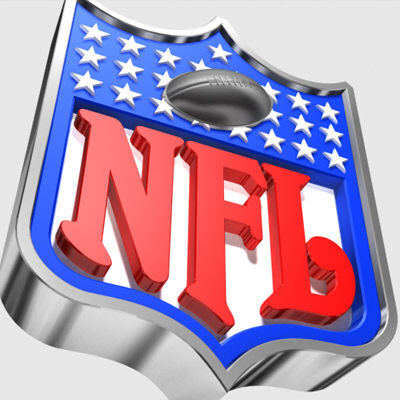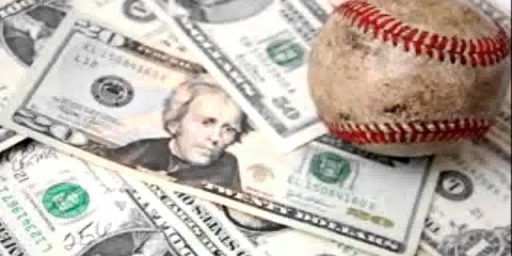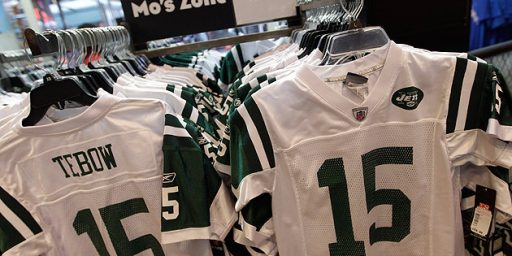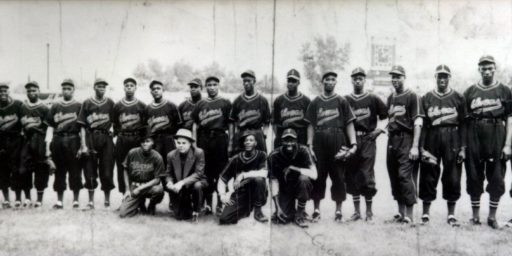Supreme Court Takes NFL Apparel Case
 The Supreme Court today agreed to consider whether the NFL is violating federal antitrust law in its exclusive licensing deal with Reebok.
The Supreme Court today agreed to consider whether the NFL is violating federal antitrust law in its exclusive licensing deal with Reebok.
The court said it will hear an appeal from American Needle Inc., of Buffalo Grove, Ill., that challenges an agreement the NFL struck with Reebok International Ltd. American Needle had been one of many firms that manufactured NFL headwear until the league granted an exclusive contract to Reebok in 2001.
The NFL won the case in the federal appeals court in Chicago. But it also asked the Supreme Court to hear the case in a quest for a more sweeping decision that could put an end to what the league considers costly, frivolous antitrust lawsuits.
The case concerns whether the league is essentially a “single entity” that can act collectively or 32 distinct businesses that must be careful about running afoul of antitrust laws by working too closely together.
Other than Major League Baseball, which has an antitrust exemption dating to 1922, the other sports leagues have an intense interest in the case. The National Basketball Association and the National Hockey League both asked the court to rule in favor of the NFL.
The case will be argued late this year or early in 2010.
I’m a fan of the NFL’s product and of their business acumen. I’m not, however, a fan of their various exclusivity arrangements, such as the one that makes NFL Sunday Ticket available only to those who subscribe to DirecTV or NFL Radio available only to subscribers to Sirius (or now, by virtue of their merger, XM) satellite radio.
Antitrust law is complicated and I have no opinion on the merits of the case. If, however, the central question is whether the NFL is a “league” or 32 independent teams that happen to play one another, it’s quite obviously the former. The teams are franchises controlled by the NFL and have value only within the context of the larger League operation.
If the Court rules that the NFL is violating antitrust law in exclusive licensing of apparel to Reebok, then it strikes me that much of what we take for granted in the operation of professional sports leagues would similarly be illegal restraint of trade. For example, the NFL Draft, which forces a would-be professional football player to go to the team that selects him regardless than competing on the open market for the best offer, would seem a much more egregious violation.





Given the general monopoly sports leagues have in this country (MLB, NHL, NBA, etc.) I would say the NFL took the deal for granted.
“If the Court rules that the NFL is violating antitrust law in exclusive licensing of apparel to Reebok, then it strikes me that much of what we take for granted in the operation of professional sports leagues would similarly be illegal restraint of trade. For example, the NFL Draft, which forces a would-be professional football player to go to the team that selects him regardless than competing on the open market for the best offer, would seem a much more egregious violation.”
Interesting topic.
A McDonald’s franchisee is required to abide by the supply (and other) arrangements of McDonald’s Corporate for obvious control/price reasons. That seems fine; it makes the “league” work and prosper. And after all, you don’t have to buy a franchise and play by McDonald’s rules.
But it’s one thing for the “league” members to waive their right to finding the best supplier deal, but quite another for a “franchise” to discriminate in employment practices.
A potential employee waiving his/her rights is also a different issue. Concept: “Listen Mr. QB. You are benefitting from the league’s controls that keep it viable and profitable….and your salary high; so you must waive your rights.”
I have to think this is how it will get argued. The player/draftee has no “right” to play in the NFL, MLB, NBA etc. Rather, if they don’t like the draft system set up by the league, they can take that marvelous education and football mill diploma they received and gain wonderful employment on the free market……….and for 90% of the players that means, you know, a garbage collector, or parking lot attendant.
With respect to the NFL draft, there is plenty of competition for the efforts of those drafted. It comes from the MLB Draft, the NBA draft, the NHL Draft, the Canadian Football League Draft, etc., etc., etc. While most of these young men made a conscious decision years before to aim for one or another of these leagues, it was their decisoin to concentrate on football, or baseball or basketball. Hard to blame the professional leagues for that.
Comeptition can also come from quite unexpected sources as someone could decide to enter some professional field where brains matter more than braun. Not to mention all the other entertainment offerings that are competing for the same consumer dollars. Anyway, the league is the product, not the teams.
Removing the draft would make the NFL look like the BCS system in college where a dozen teams are vying for the top spot year in and year out, another dozen teams can compete on occasion, and the other 80% of teams are relegated to permanent also-ran status. That was definitely not Pete Rozelle’s vision. We can debate the merits of this approach in college, but it would be fatal for a professional league to have 80% of their teams never able to compete for a championship.
You don’t have to like the NFL’s exclusive merchandising decisions, but they have every right to make them, just like every Hollywood producer can make decisions about how to distribute his or her product to maximize their income.
Interestingly, the NFL draft is about the closest thing you can get to a kind of needs based affirmative action to try and keep the playing field level from the perspective of the league as a whole. Funny where many of the complaints about this being a violation of antitrust or illegal restraint of trade come from.
I wonder how important it will be that the particular issue — manufactured NFL headwear — bears on health and safety concerns. Are their people or teams able to argue that choice of helmets is essential to connecting players with the best safety equipment for them? Does an exclusive deal hamper innovation on safe helmet design?